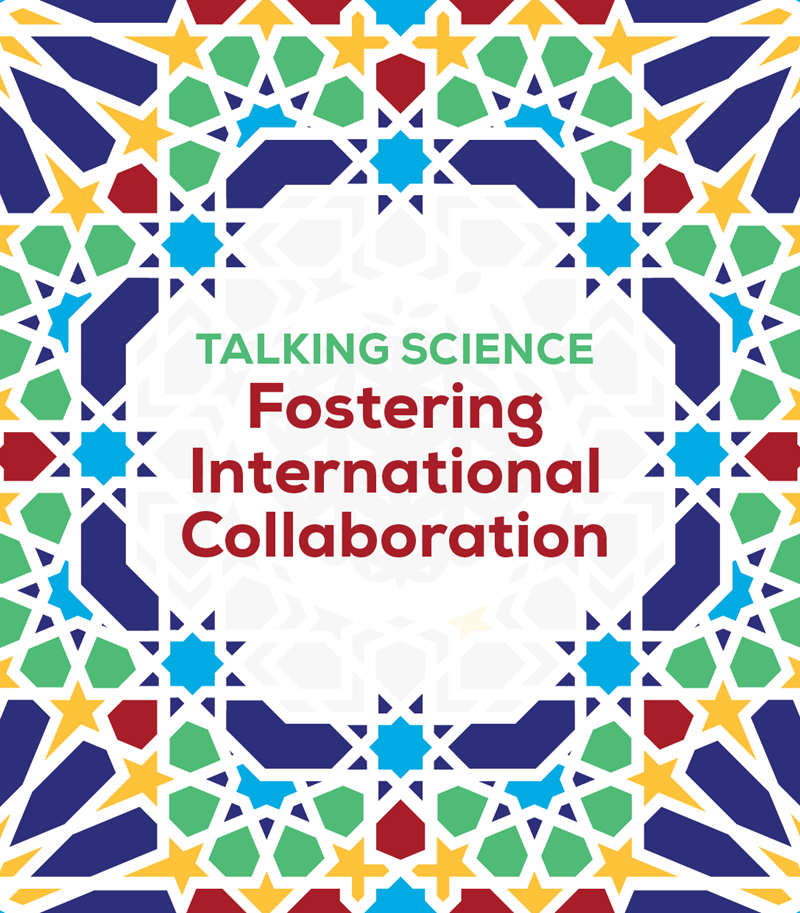
Talking Science: Fostering International Collaboration
On the occasion of the 2023 High Level Workshop on ERA, the campaign 'Talking Science: Fostering International Collaboration' showcases the activities of Science Europe Member Organisations related to international scientific collaboration with Africa, Latin America, and the Caribbean.
These initiatives take into account core principles like academic freedom, integrity, and reciprocity.
Initiatives listed are those that relate to international scientific collaboration with Africa, Latin America, and the Caribbean in one of the following categories:
- focusing on principles such as academic freedom, integrity, and reciprocity.
- existing international scientific collaboration instruments, such as funding tools and research mobility programmes.
- global scientific networks in achieving positive societal change.

FAPESP-FWO Collaboration
Since 2018, the Research Foundation Flanders (FWO) and Fundação de Amparo à Pesquisa (FAPESP) have brought together the São Paulo and Flemish research communities in calls for excellent integrated research projects without any thematic restrictions. This agreement has been very successful, both in terms of researcher interest in the calls and in the fluent way both funding agencies set up and implemented them. Especially the selection process deserves praise, as this was unrolled without duplicating processes and with mutual trust for each evaluation step.
This is a textbook example of solid international collaboration generating impact for the included research communities. The next joint FAPESP–FWO call is planned in 2024.
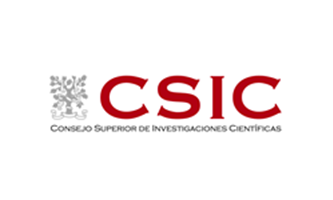
Boiling Stone
Zeolites – from the Greek ζέω (zéō) ‘to boil’ and λίθος (líthos) ‘stone’ – are natural minerals that, after chemical modification, could be used to clean water in Ethiopia and in other countries, such as Tanzania, Kenia, India, México, and 20+ others. Fluoride, a natural pollutant coming from volcanic rocks, pollutes groundwater provoking fatal health problems mainly in (pregnant) women, and children. In Ethiopia alone, more than 14 million people are currently exposed to fluorosis due to the use of naturally polluted water.
International scientific collaboration between Europe, Africa, and Latin America with a focus on global scientific networks involving public–private–third sector collaboration has indeed shown to be crucial in achieving positive societal change, in removing fluorosis in a sustainable manner.
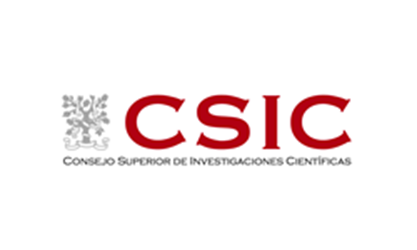
Conneccaribbean
‘Connected Worlds: the Caribbean, Origin of Modern World’ is not just a research project on the history of the Caribbean; it represents an opportunity to establish stronger links between the territories of the Caribbean, Europe, and Latin America. The proposed research topic invites networking to achieve considerable comparative and transdisciplinary results related to issues such as trade and slave system, race construction, racism, development models, circulation of knowledge, and images and representations in and of the Caribbean.
With a transnational approach, this project will contribute to the establishment of specialised research structures and networks, which will allow a deeper exploration of regional problems which take into account the historical and socio-political context of the Caribbean region.

FOSC (ERA-NET Cofund)
FOSC is a trans‐continental initiative between Europe, Africa, and Latin America in the field of food systems and climate, launched in the frame of Horizon 2020. It calls for support to basic and applied research and focuses on the interactions between climate change and food systems: assessing the consequences of climate change on agri‐food markets and developing sustainable and resilient food value chains in the context of changing food needs and patterns.

LEAP-Agri (ERA-Net Cofund)
The ERA-Net cofund LEAP-Agri is a joint Europe and Africa Research and Innovation initiative on Food and Nutrition Security and Sustainable Agriculture launched in the frame of Horizon 2020. The project started in December 2016 for a 5-year duration. The aim of the calls was to finance research on innovative proposals with the objective of contributing to food security in Africa, in particular by promoting more sustainable agriculture and aquaculture, a better understanding of the relationship between food and health, and an analysis of access to food products in connection with commercial circuits.

LEAP-RE: Long-term Europe–Africa Partnership on Renewable Energy
The ‘Long-term Europe–Africa Partnership on Renewable Energy’ is a Horizon 2020 EU-funded project. Over a period of five years (2020–2025), it seeks to create a long-term partnership of African and European stakeholders. LEAP-RE is intended to fund transnational research and innovation projects dealing with the subject of renewable energies in Africa to increase their use.

PRIMA
The Partnership for Research & Innovation in the Mediterranean area programme is supported by Horizon 2020 (formally an Intitutionalised Partnership, based on Art. 185 TFEU, with a 7-year duration). The aim is to support research projects that contribute to sustainable use of natural resources, economic growth and stability in the Mediterranean. PRIMA aims to strengthen the capacities of research and innovation and to develop joint knowledge and innovative solutions for agri-food systems and water supply in the Mediterranean region to make them sustainable, in line with the United Nations Program of Action for sustainable development by 2030. Participant countries are from the EU and from the Southern and Eastern shores of the Mediterranean.

T-AP: Trans-Atlantic Platform for SSH
Launched in 2013, The Trans-Atlantic Platform for Social Sciences and Humanities (T-AP) is a collaboration between humanities and social science research funders from the Americas, Africa and Europe. T-AP aims to identify common challenges and promote a culture of collaboration in social science and humanities research. T-AP also strives to heighten awareness of the role the social sciences and humanities play in addressing 21st century challenges. T-AP has launched four calls since its inception.

Sargassum 2
In 2021, this joint call between funders from Brazil, France, and the Netherlands supported collaborative international research and development projects to foster our understanding of the reasons behind the increase in Sargassum blooms, and create a scientific basis for informing local decision makers who are responsible for mitigating the impact of Sargassum through innovative, cost-effective solutions. This call supported joint initiatives from different countries, including regional authorities and institutions from Caribbean islands and the American region with the aim of gaining a better understanding of the causes of Sargassum blooms to improve forecasting and mitigation of these harmful events.
Norway–South Africa Bilateral Research Programme
Research collaboration with South Africa has a long history, with four bilateral research programmes since 2002. The SANOCEAN programme started in 2019 with a clear focus on the ocean, an area of focus that is prioritised by both countries. It has supported 10 collaborative projects and has come to an end in 2023, with a new phase being planned. There is funding from both sides and all projects have a project leader from both countries.
The initiative has led to very good links between Norwegian research and South-African research. We see great results in Horizon 2020 and Horizon Europe. South-Africa is number three in third country collaboration for Norway in Horizon 2020.
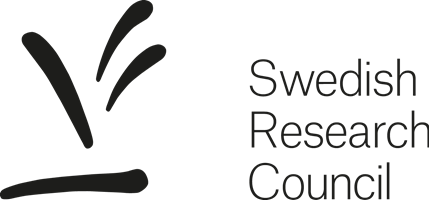
Research Project Grant
The project grant gives researchers the freedom to formulate by themselves a research concept, method and implementation, and to solve a specific research task within a limited period. It is open for application once a year within all scientific fields.
Up to six participating researchers from any country may be included in the application (currently excluding researchers from Russia and Belarus). The grant does not target any specific country but allows for inclusion from Europe, Africa, Latin America and the Caribbean. Participating researchers are those with a doctoral degree or equivalent competence (not doctoral students) whose scientific competence will be crucial for the implementation of the planned research. They do not have to be employed by a Swedish higher education institution.
The link leads to an example in the Humanities and Social Sciences, but the call is the same for other areas.

International Postdoc
This grant gives newly-qualified researchers with a doctoral degree from a Swedish higher education institution the opportunity to expand their networks and competences by working abroad under secure employment conditions. It also promotes the quality and renewal of Swedish research. The grant targets individual researchers who completed a doctoral degree within the last two years or will do so before the start of the grant period.
The call opens twice a year in several research areas. There are no limitations in terms of countries, but one condition is that at least two-thirds of the grant period (18–36 months) must be spent abroad (this may be divided into several shorter stays). The initiative does not target Europe, Africa, Latin America and the Caribbean specifically, but researchers may choose a country in one of these regions.
The link leads to an example in the area of Medicine and Health, but the call is the same for other areas.

UKRI/FAPESP Lead Agency Opportunity
The lead agency opportunity enables UKRI research councils to receive and assess joint applications from eligible researchers in the UK and the Brazilian state of São Paulo on behalf of both organisations. Successful applications are co-funded by FAPESP and UKRI.
Collaborative research applications led by UK applicants with São Paulo-based partners may be submitted in any single or cross-disciplinary area which fits within the remit of the UKRI research councils. A number of standard research grant funding opportunities from UKRI’s research councils are open to joint UK–Brazil applications, with more information available on UKRI’s Funding Finder. Applications are submitted to the relevant UKRI research council, which then leads on the processing and assessment of the application on behalf of both organisations, consulting with FAPESP on eligibility checks and nomination of reviewers. Successful projects receive funding from UKRI for the UK component, and from FAPESP for the São Paulo component.

Global Challenges Research Fund (GCRF) – Growing Research Capacity (GROW)
GROW is part of the GCRF, which supported cutting-edge R&I that addressed global issues faced by lower- or middle-income countries. GROW was focused on increasing research capacity around the globe and strengthening and broadening skills. Launched in 2016, the call supported 37 projects with 69 partner countries for over four years. Each project was a collaboration between institutions in developing countries and the UK, which have led to partnerships, ideas and knowledge that outlast the period of the programme.
The initiative resulted in a range of impacts, including several that indicate research capacity had been strengthened. The GCRF African SWIFT programme funded through the programme, for example, aimed to deliver changes to the African weather forecasting system capability and communication to protect lives and improve economies. New techniques were introduced that enabled more accurate forecasting and the ability to better predict meningitis outbreaks linked to weather data. The skills and experience strengthened via the programme also contributed to the selection of a SWIFT academic to be awarded a Fellowship.
The GROW programme has demonstrated the importance of partnering globally to respond to interdisciplinary development challenges. It enabled researchers world-wide to collaborate, guided by the most immediate and pressing challenges, as identified by those overseas, and to achieve impact.

African Research Leaders
The African Research Leaders (ARL) Fellowship scheme seeks to support excellent global health research and strengthen research leadership across sub-Saharan Africa (SSA) by funding talented early-to-mid career African researchers. It is funded in collaboration between the UK Medical Research Council (MRC) and the UK Foreign, Commonwealth and Development Office (FCDO).
Recognising the lack of research funding and infrastructure in many SSA countries and the impact this has in attracting and retaining talented African scientists, the scheme aims to strengthen research leadership across SSA by funding exceptionally talented individuals who will lead high-quality research programmes on key global health issues pertinent to SSA. Applicants to the scheme should be based at an eligible organisation in SSA, and should apply in partnership with a UK co-investigator who will provide mentoring, such as senior scientific expertise, skills strengthening, technology sharing and so on.
Since obtaining ARL fellowships, many recipients have received significant rises in seniority and have been able to leverage this to increase the collaborative opportunities between UK and African institutions.
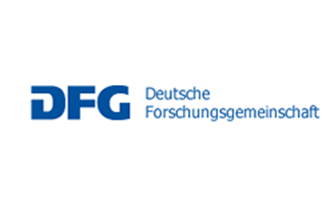
African–German Scientific Exchange
The ‘African–German Scientific Exchanges’ invite researchers from Africa and Germany to exchange research ideas, network, and initiate international scientific collaboration. Interested researchers are invited to submit scientific posters showcasing their expertise and ideas for joint projects. These are organised in a posterbook, which is distributed among all participants. This facilitates self-organised networking with low demand on internet connectivity. Researchers are then called to apply for funds under the DFG ‘Initiation of International Collaboration’ programme.
After a successful peer review process, funded project teams may use their grant to specify and further develop their project proposal through exploratory workshops, project-related trips abroad, and project-related guest visits and eventually work on a proposal for an ‘Individual Research Grant’. The initiative is enriched by an integrated Status Workshop in Bonn/Germany and convenes all funded research teams for scientific exchange and networking.
Previous calls have been launched in the fields of ‘Public Health’ and ‘Sustainable Intensification of Agriculture’. 178 researchers in 44 project teams from 24 African countries and Germany have received funding so far.

TWAS–DFG Cooperation Visits Programme
Every year, the German Research Foundation (DFG) and The World Academy of Sciences for the Advancement of Science in Developing Countries (TWAS) fund 50 researchers from sub-Saharan Africa to stay at a research institution in Germany for three months. The aim of the programme is to initiate research collaborations between African and German scientists with the ultimate goal of developing longer-term links, e.g. through other DFG funding programmes.
Visits must be started within 12 months of the award. DFG covers travel expenses, subsistence costs for the stay in Germany as well as incidental laboratory costs.

German–African Cooperation Projects in Infectiology
Conceived in 2007, this DFG initiative sees African and German researchers jointly address basic questions of diseases affecting humans and livestock with an emphasis on the so-called ‘neglected diseases’. In the fight against fatal infectious disease, intense research efforts are required. However, tackling these medical problems in Africa by national researchers has met powerful obstacles due to the lack of efficient academic structures. The DFG therefore requests projects to be jointly planned and executed by researchers from the African countries and Germany and are required to enhance existing research capacities and train junior scientists at the research institutions in Africa.
To date, 74 projects have been funded with €84.1m in 28 African countries, several involving more than one African country. They have resulted in high-level publications with African partners in leading positions, and in several students graduating within the projects to become junior faculty staff.

Point Sud
Since 2009, the Goethe-University of Frankfurt/Main and the German Research Foundation (DFG) have established the programme ‘Point Sud’ to fund Africa-related workshops and conferences in the humanities and social sciences. One of the key features is that all activities are organised in Africa on the basis of a convivial collaboration with a network of research institutions in eight African countries. Franco-, anglo- and lusophone countries were chosen to cross language boundaries and research traditions established by the former leading colonial powers. The programme wants to promote the establishment of a truly postcolonial academic community in Africa.
So far, the programme has organised 74 international and interdisciplinary workshops and conferences with over 2,500 participants from across the world. Great efforts were made to achieve gender balance among the participants, and 65% of the scholars are early-career researchers to promote the future generations in science. Another characteristic of the programme is that the topics of the events are jointly developed by convening teams from Germany and Africa and the rest of the world to reflect different research agendas and perspectives.
Last but not least, the programme focuses on topics of socio-political relevance in Africa. This entails also the involvement of representatives of civil society, activists, artists, but also state officials in order to foster dialogue beyond the academic sphere.
